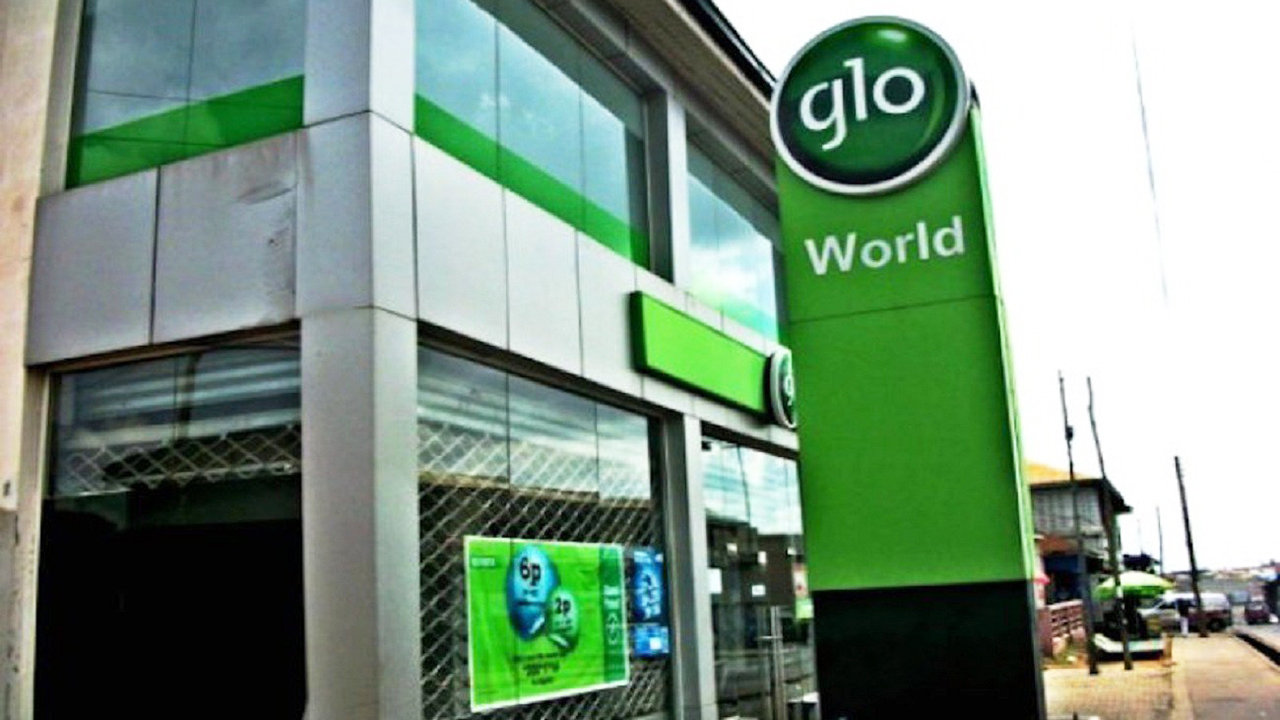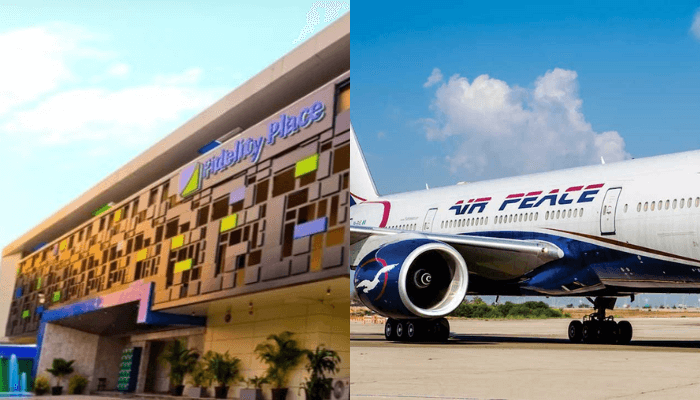Business
LBS Sustainability Centre Hosts Business Meeting on Changing Reporting Landscape

Exciting investor and stakeholder engagement opportunities await organisations and professionals keen on leveraging the sustainability performance of businesses. As calls for increased transparency in performance and impact measurement heightened, Nigeria has adopted the IFRS Sustainability Disclosure Standards, IFRS S1 and S2.
The Lagos Business School (LBS) Sustainability Centre has hosted an Executive Meeting on Corporate Sustainability themed ‘Collaborating in the Changing Reporting Landscape’. An engagement for business executives and sustainability practitioners to understand the demands of this changing landscape, collaborate for more robust reporting, deploy responsible business practices and avoid greenwashing.
Speaking at the meeting, Dr Iheanyi Anyahara, Director, Financial Reporting Council of Nigeria, walked attendees through the evolution of sustainability reporting in Nigeria and the globe, citing the needs that prompted it in the first instance. He said, “CSR reports put together by companies were never standardised, hence, the need for standardised ESG reporting. He further added that sustainability brings about innovation which in turn accelerates development. Little wonder, investors and stakeholders rely on accurate and transparent sustainability reporting to unlock capital, attract Foreign Direct Investment (FDI) and implement FEC 2010 directives.
Marilyn Obaisa-Osula, Associate Director, PwC Nigeria; gave sustainability insights for organisations and individuals who seek to get it right by ticking the right boxes for performance measurement of impact across critical materialities and metrics. She said, “the aim of sustainability is to drive value. Sustainability reporting offers a genuine competitive advantage, and businesses that take the time to learn about and implement sustainability reporting now, will be well-placed to succeed in the long term ahead of compliance and regulations. We must look at the opportunities sustainability provides through a local lens, and oftentimes, when we do, they become adopted as globally accepted frameworks. She added that Sustainability does not wipe out profit but tells you to look at your business growth beyond profit. Accountants now see sustainability and understand it because they see the opportunity in it and the funds that can be unlocked from it.”
A Question and Answer session was facilitated by Eunice Sampson, Director, Climate Change & Sustainability, Ernst & Young; who made the session truly impactful. She harped on the need for practitioners to stay ahead of regulation by being up to date with new requirements and trends in the industry to keep their organisations afloat. She said “ Businesses mostly fail not because of financial issues but because of ESG issues. They lose reputational capital, they lose customer base, and many other things, etc which ultimately lead to business failure. Financial failure is a symptom. Ethics, integrity, accountability and transparency are all governance issues in sustainability. She added that ‘You must have your business case for sustainability.
Dr Godwin Ihetu, former Managing Director (MD), Nigeria Liquefied Natural Gas (NLNG) also gave his remarks, highlighting the importance of sustainability in the oil and gas sector, and its intersection and interconnectedness with climate change and energy transitions. Jonathan Ikeolumba, Research Affiliate at the LBS Sustainability Centre compered the event and Theresa Akpoveso, Senior Associate, LBS Sustainability Centre gave the vote of thanks.
Lagos Business School is Africa’s leading management education institution and the LBS Sustainability Centre is a leading knowledge centre that brings together the theory and practice on business and sustainability for the advancement of performance and development outcomes. For more information about the initiatives and upcoming events by the Lagos Business School Sustainability Centre, please contact sustainabilitycentre@lbs.edu.ng. Together we can work towards a sustainable future for businesses on the continent. See our programmes at https://lbssustainabilitycentre.edu.ng/training
Business
FirstBank Partners Verve to Issue Free Debit Cards in Nationwide Promo

First Bank of Nigeria Limited (FirstBank), Nigeria’s premier and leading financial inclusion services provider, has announced the launch of the Verve Flash Promo, a special initiative rewarding customers with free Verve cards.
The campaign, which commenced on 6 October 2025, and will run until 30 January 2026, is exclusively targeted at FirstBank customers whose ATM cards have expired.
The free cards will be issued daily to 131 customers on a first-come, first-served basis across the Bank’s branches, nationwide. FirstBank’s unwavering commitment to convenience, accessibility, and customer satisfaction.
Speaking on the rewards to FirstBank customers, Chuma Ezirim, the Group Executive, e-Business and Retail Products at FirstBank, said: “The Verve Flash Promo is not just about rewarding customers with free verve debit cards; it is about celebrating our legacy of 131 years of trust, resilience, and innovation in the Nigerian financial services industry. At FirstBank, we remain committed to providing customer-centric solutions that enable secure, seamless, and convenient payment experiences. Partnering with Verve International on these initiatives, including the Verve Good Life promo, underscores our shared vision of deepening financial inclusion while rewarding our loyal customers for their continuous patronage.”
Also commenting, Vincent Ogbunude, Managing Director, Verve International, noted:
“Through strategic collaborations like this with FirstBank, we continue to demonstrate Verve’s commitment to enhancing access to seamless payment solutions for every Nigerian. The Verve Flash Promo not only rewards loyal customers but also reinforces our vision of making everyday transactions more rewarding, secure, and convenient. As we extend the Good Life Promo, we remain steadfast in our goal of deepening financial inclusion while delivering real value to Verve cardholders across the country.”
Meanwhile, the ongoing Verve Good Life promo, designed to reward Verve debit card holders for using their cards at specific merchant points, has been extended to 30 November 2025.
During the period, Verve Card holders enjoy 10% cashback at The Place Restaurant, Quickteller, Buypower, Filmhouse, AlliExpress, Addide Supermarkets, and Chowdeck app every Thursday to Sunday.
Verve cardholders can now enjoy a 10% cashback on the Google Play Store any day of the week throughout the Good Life Promo, which runs until 30 November 2025. Moreso, every transaction made with a Verve card whether on ATMs, POS terminals, or online platforms automatically earns customers a chance to win up to ₦1,000,000.
Business
Glo Enhances Data Bundles, Offers More Data at No Extra Cost

Nigeria’s leading telecommunications company, Globacom, has announced enhancement of its data bundles to give subscribers more data volume at the same affordable prices.
The upgrade reinforces the company’s commitment to providing superior value and exceptional customer satisfaction.
The upgraded Glo Data Bundles are enhanced versions of the existing daily, weekly, and monthly plans, giving subscribers more data at no additional cost.
These improvements offer users greater freedom and convenience to enjoy their favourite online activities from streaming and gaming to social media, video calls, and more.
For daily users, the ₦100 plan has been upgraded from 105MB to 125MB, giving light internet users even more data to browse, chat, and stream short videos conveniently.
The weekly bundles have also received notable boosts, such as the ₦1,500 plan, which now offers 6GB instead of 5.9GB, enabling subscribers to stay connected longer.
Heavy data consumers will also enjoy remarkable value on the monthly plans. The ₦2,000 bundle now gives 6.25GB, while the ₦10,000 package has been enhanced from 38GB to 42GB, allowing users to do more from video streaming and large file downloads to remote work and virtual meetings.
Students are not left out, as the Campus Booster Plan has been upgraded with higher data allowances, ensuring seamless access to academic resources and social networks while on campus.
Globacom noted that the revised bundles are available to all Glo customers prepaid, postpaid, and hybrid and can be activated by dialing *312#, using the Glo Café app (available on Android and iOS), or visiting hsi.glo.com.
The company added that subscribers can use, share, or gift data through *312# or the Glo Café app. Customers will also continue to receive data usage alerts at 75% and 100% consumption levels to help monitor usage effectively.
Unused data is automatically rolled over upon renewal before expiry or when a new plan is purchased within the grace period (ranging from one to seven days, depending on the plan).
Globacom reaffirmed its commitment to empowering Nigerians with reliable and affordable data access, urging customers to take advantage of the revised data bundles that combine affordability, quality, and more browsing power ensuring every Glo subscriber enjoys more data without paying more.
Business
Maiden Flight to Heathrow Airport: Fidelity Bank Hails Air Peace

Fidelity Bank Plc has congratulated Air Peace on the successful launch of its maiden direct flight from Lagos to London Heathrow, describing the milestone as a significant achievement for Nigeria’s aviation sector and a testament to the power of indigenous partnerships.
The commendation was delivered by Dr. Nneka Onyeali-Ikpe, managing director of Fidelity Bank, during a special event held in Lagos to celebrate the airline’s expansion into the European market.
“This is not just a win for Air Peace, but a win for Nigeria,” Onyeali-Ikpe said. “It reflects the strength of home-grown businesses and the impact of strategic financial support in enabling national champions to thrive on the global stage.”
Nigeria CommunicationsWeek reports that Fidelity Bank has played a pivotal role in Air Peace’s growth, providing early financial backing and advisory services that helped the airline become the largest carrier in West Africa. The bank continues to support Air Peace through payment processing and other financial services
The launch of the London route marks a new chapter for Air Peace, which now joins a select group of African airlines operating direct flights to Heathrow.
The development is expected to boost tourism, trade, and connectivity between Nigeria and the United Kingdom.
Speaking at the event, Allen Onyema, Chairman of Air Peace, expressed gratitude to Fidelity Bank for its unwavering support and reaffirmed the airline’s commitment to excellence and service.
“This partnership has been instrumental in our journey,” Onyema said. “We are proud to fly the Nigerian flag across international skies.”
Industry stakeholders present at the event praised the collaboration between the two companies as a model for sustainable business growth and national development.






